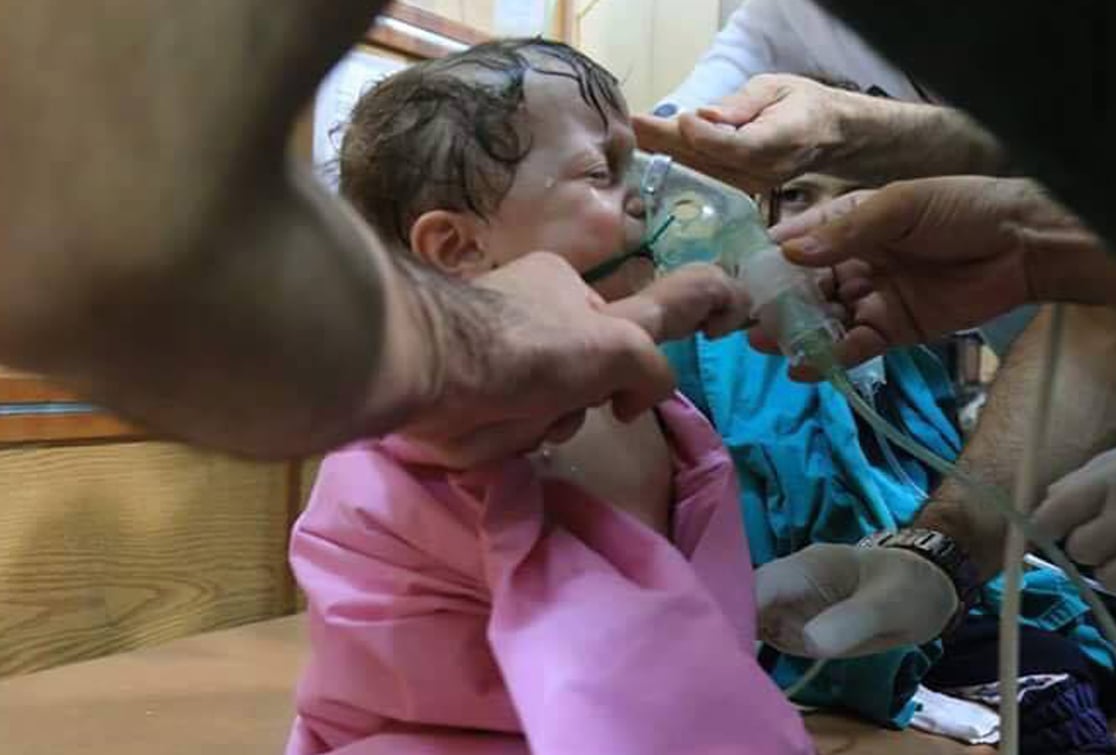139 Violations of the Security Council Resolution and the Criminal is still in Power

The report: “139 Violations of the Security Council Resolution and the Criminal is still in Power”, which was published by SNHR, draws upon the ongoing and daily monitoring since 2011 and on accounts of survivors, eyewitnesses, and particularly doctors who treated the injured and civil defense personnel. The report includes four accounts.
The 10 page report notes that poison gases were used 33 tomes before Security Council Resolution 2118, adopted on 27 September 2013, while poison gases were used in 139 attacks by both the Syrian regime and ISIS after Security Council Resolution 2118 was adopted.
The report asserts that the Syrian regime focused in its use of poison gases on opposition-held areas where 97% of its chemical attacks targeted opposition-held areas while 3% of the attacks were carried out in ISIS-held areas.
The report sheds light on four new attacks that involved the use of chemical weapons between 1 January 2016 and 20 August 2016.
According to the report, Security Council Resolution 2118 was violated 139 times including 70 violations of Security Council Resolution 2209, adopted on 6 March 2015. The violations are distributed as follows: 136 violations by government forces and three violations by ISIS.
Furthermore, the report says that most of the chemical attacks were in Idlib governorate followed by Damascus suburbs governorate and Hama. The death toll of the attacks that were carried out after Security Council Resolution 2118 amounted to 88 individuals divided into 45 elements of the armed opposition, seven government forces captives, and 36 civilians including 20 children and six women.
The Report notes that government forces have violated the international humanitarian law by using internationally-prohibited weapon which constitutes a war crime. Also, government forces violated Security Council Resolutions on this issue. Furthermore, the crime of willful killing amount to a crime against humanity according to Article 7 of Rome Statue as it has been carried out in a systematic and widespread manner since Match 2011. The use of chlorine gas is a violation of Security Council Resolutions 2118 and 2209 and the agreement signed by the Syrian government on 14 September 2013 which states that the use of poison gases is prohibited and establishes for the destruction of chemical weapon.
The report calls on the Independent International Commission of Inquiry on the Syrian Arab Republic to start immediately investigating the incidents within its reach and take serious steps to accelerate the investigation to determine the parties using these kind of weapons especially after the Syrian government has signed the Chemical Weapons Convention.
Additionally, the report calls on the Security Council to act upon its responsibilities in maintaining civil peace and security in Syria as the violations perpetrated by the Syrian government entail a blatant threat to international security and peace. Furthermore, the Security Council must stop putting political interests before the blood of the Syrian people.
The report emphasizes the necessity to shed a wider light on the Syrian regime’s violations of the Security Council Resolutions 2118 and 2209 by the Human Rights Council in order to achieve greater pressure on the Security Council to take serious deterring action.
Finally, the report urges the state friends of the Syrian people to supply the areas that are prone to chemical attacks with protective masks (in light of the Security Council’s inability to cease the attacks). SNHR estimates that these areas need no less than 18,700 in addition to equipment to dispose the effects of chemical pollution.


